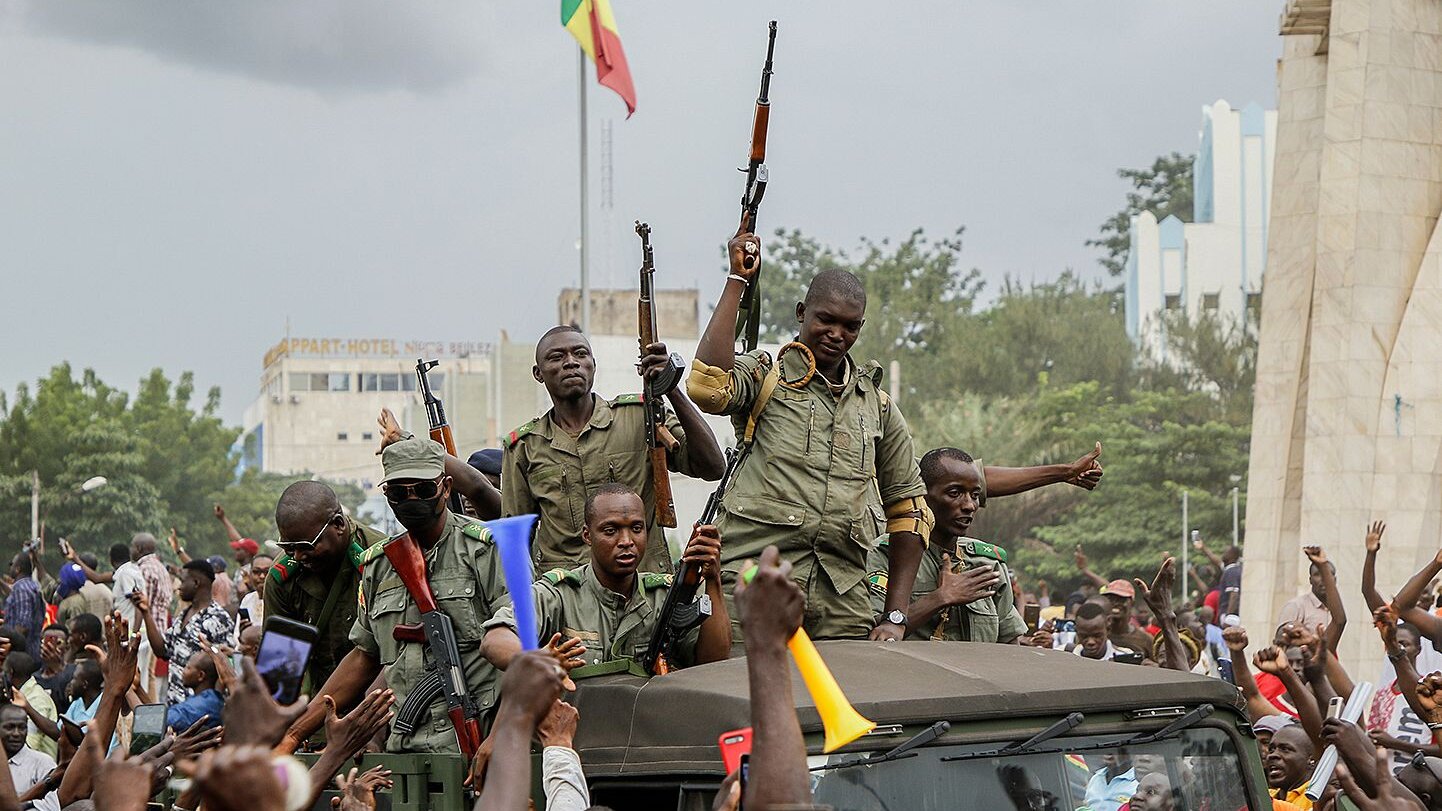The past two years haven’t been productive for most people, with one notable exception: African coup plotters. The successful coup in Burkina Faso last week, like the unsuccessful putsch attempt in Guinea-Bissau on Tuesday, are further evidence of what UN Chief Antonio Guterres has called an “epidemic of coups d’etat,” spreading across the continent, often to popular acclaim, a wave of de-democratisation comparable to an Arab Spring in reverse.
The current cycle of coups kicked off in Mali, a country beset by a decade-long counterinsurgency campaign against jihadists and ethnic separatists in the north and centre of the country, and a sense of growing instability the French military presence has been unable to quell. First Mali’s president Ibrahim Boubacar Keita (or IBK) was overthrown by middle-ranking officers in August 2020. And when the military-installed interim government removed military officers from key posts, that too was removed from power by a second military coup in May last year.
In Chad, the army installed General Mahamat Idriss Déby Itno, son of the three-decades long ruler Idriss Déby, in office last April, after his father was killed battling rebels in the country’s far north. In Guinea, the country’s first democratically elected president Alpha Conde was overthrown by the army last September, after he attempted to extend his term in office. And in Sudan, a military coup last October overthrew the civilian-led transition government installed after the army overthrew the autocrat Omar al-Bashir following mass protests in 2019.
But why now? Like families in Anna Karenina, each of these countries is unhappy in its own unique way, but some common trends can be discerned: Mali, Chad and Burkina Faso have all been destabilised by the growing Sahelian security crisis, an unintended consequence of the 2011 Western intervention in Libya. When Malian Tuareg mercenaries in Gadhafi’s employ fled the country following the NATO-backed rebel victory, they brought with them vast quantities of weaponry looted from Libyan arsenals, which they used to take over Mali’s north — prompting a 2012 military coup in the capital Bamako. The Tuareg nationalists were ousted in turn by better-disciplined jihadist forces, whose advance towards Bamako was halted only by a French-led military intervention.
A gruelling decade-long counterinsurgency campaign has dragged in American special forces as well as European allies — including British troops — but has been unable to prevent the conflict spreading not just to Mali’s previously quiet central belt, now the focus of both the jihadist insurgency and a bloody cycle of interethnic violence, but also across the wider Sahel as a whole, dragging in neighbours like Chad and Burkina Faso. The securitisation of the region’s politics may not have ended the violence, but has raised the profile of the military, while feeding a growing sense of dissatisfaction with the quality of democratic governance among voters in the region’s capitals.
Whatever its attraction in theory, in practice democracy has failed across much of Africa. As the Burkinabe civil society activist Marcel Tankanao told Reuters this week, “Since the 1990s there has been a wave of democracy across West Africa. But that democracy has failed the people…We must be clear, we need a military regime.” As Rwanda’s relatively benign (or at least, competent) dictator Paul Kagame remarks, military coups are simply the “result of a failure in governance,” asserting that “if, under a civilian government, the situation deteriorates and people die, the problems accumulate and the authorities use the military to rig the elections, who is to blame when the army overthrows these governments?”
Of course, dissatisfaction with the democratic system is not unique to Africa. What has changed is the international context: the wave of democracy promotion that followed the Cold War is receding, and more and more countries are either reverting to or experimenting with non-democratic forms of governance. As in the Cold War, when the continent served as a proxy battleground between communism and capitalism, Africa can be seen as a barometer of wider global trends, reflected by the new Malian regime’s insistence that French troops leave, to be replaced by Russian mercenaries: if that’s the case, then the global outlook does not look good for democracy.











Join the discussion
Join like minded readers that support our journalism by becoming a paid subscriber
To join the discussion in the comments, become a paid subscriber.
Join like minded readers that support our journalism, read unlimited articles and enjoy other subscriber-only benefits.
Subscribe